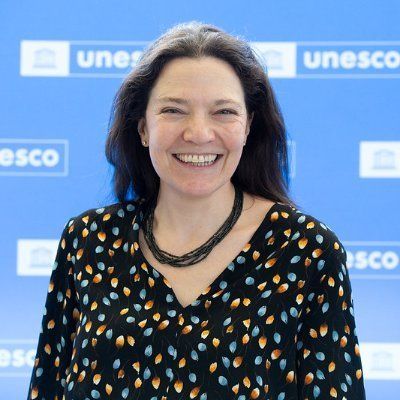Helping ‘those’ girls will lead us to reach all children
LAURA DAVIES, AMBASSADOR AND PERMANENT DELEGATE, UK DELEGATION TO UNESCO

In September 2022, while the eyes of the world were glued to the funeral of Her Majesty the Late Queen, Elizabeth II, a critically important summit was taking place in New York, in the margins of the UN General Assembly. The Transforming Education Summit - the TES - a summit whose ambition was to go where no summit had gone before: to get Sustainable Development Goal (SDG) 4 on track.
The TES is the first step in UN Secretary General Antonio Guterres’ Our Common Agenda, an attempt to make multilateralism more effective in its response to humanity’s most pressing problems. The SG is absolutely right to start here. We are in the midst of a global education crisis, exacerbated by the pandemic, the impact of climate change, increasing instances of conflict - and monstrous abuses of children’s right to learn.
The pandemic harmed the education of over 90% of the world’s children. Cuts in education budgets have exacerbated the impact: 64.3% of the world’s 10-year-olds are unable to read and understand a simple text. In Afghanistan, 3.7 million children are out of school, 60% of them girls. In Ukraine, UNESCO reports that Putin’s war has disrupted the education of 7.5 million children and damaged over 2,550 educational institutions.
But the crisis goes wider. All over the world; children are not in school, in school but not learning, or in school and learning, but learning the wrong things. The impact falls unequally. As Guterres said: “instead of being the great enabler, education is fast becoming the great divider.”
The TES was designed to address this. An impossible ambition? We cannot allow that to be true.
In June, UNESCO organised a TES pre-Summit at its Headquarters in Paris, to galvanise thinking, funding and political will ahead of the TES, and to bring youth to the table. Again and again, I was struck how foundational learning for the most marginalised will have an impact on all the other SDGs.
At the TES, we launched the Commitment to Action on Foundational Learning, a much-needed push for all children to learn to read, do basic maths, and build socio-emotional skills by the age of ten. These are the fundamentals they need to thrive and make progress through their education. It builds on the global objectives agreed last year – to get 40 million more girls in school and 20 million more girls learning to read - and on national Governments’ own targets. The ambition is to halve learning poverty globally by 2030.
This is not about limiting a child’s education to the basics, but about giving them strong foundations to build on. Options and choices. If a girl is learning in school, and she and her family can see this, she is more likely to stay in school - opening doors for future education and keeping her safe. A girl not in school is more likely to suffer violence and/or sexual abuse, end up in child labour, marry young, and have more children.
But these are difficult times, with Official Development Assistance (ODA) allocations for education going down, so we need innovative solutions to increase funding flows. The UK has been a key partner in the design of the International Finance Facility for Education (IFFEd) from the start. IFFEd will multiply donor resources up to seven times and give lower middle income countries access to affordable financing to recover from the learning crisis. It was launched at the TES, should start its first projects in 2023, and has the potential to unlock over 10 billion dollars by 2030.
There is energy, passion and a determination to succeed. There are boundless good ideas. 130 countries made commitments in New York last month. The challenge now is to turn the conversation and energy into concrete, sustainable action for which we are all held to account - particularly by the next generation.
Transforming Education Summit 2022
The Transforming Education Summit 2022 focused on education in crisis situations, improving quality of learning for all, environmental impact, quality public digital learning for all, gender equality, and increasing equitably and efficiently. This is a crisis having a devastating impact on the futures of children and youth worldwide. The aim of the Summit is to bring education to the top of the global political agenda and to inspire action, ambition, solidarity and solutions.
This article was first published in Engage 25.




